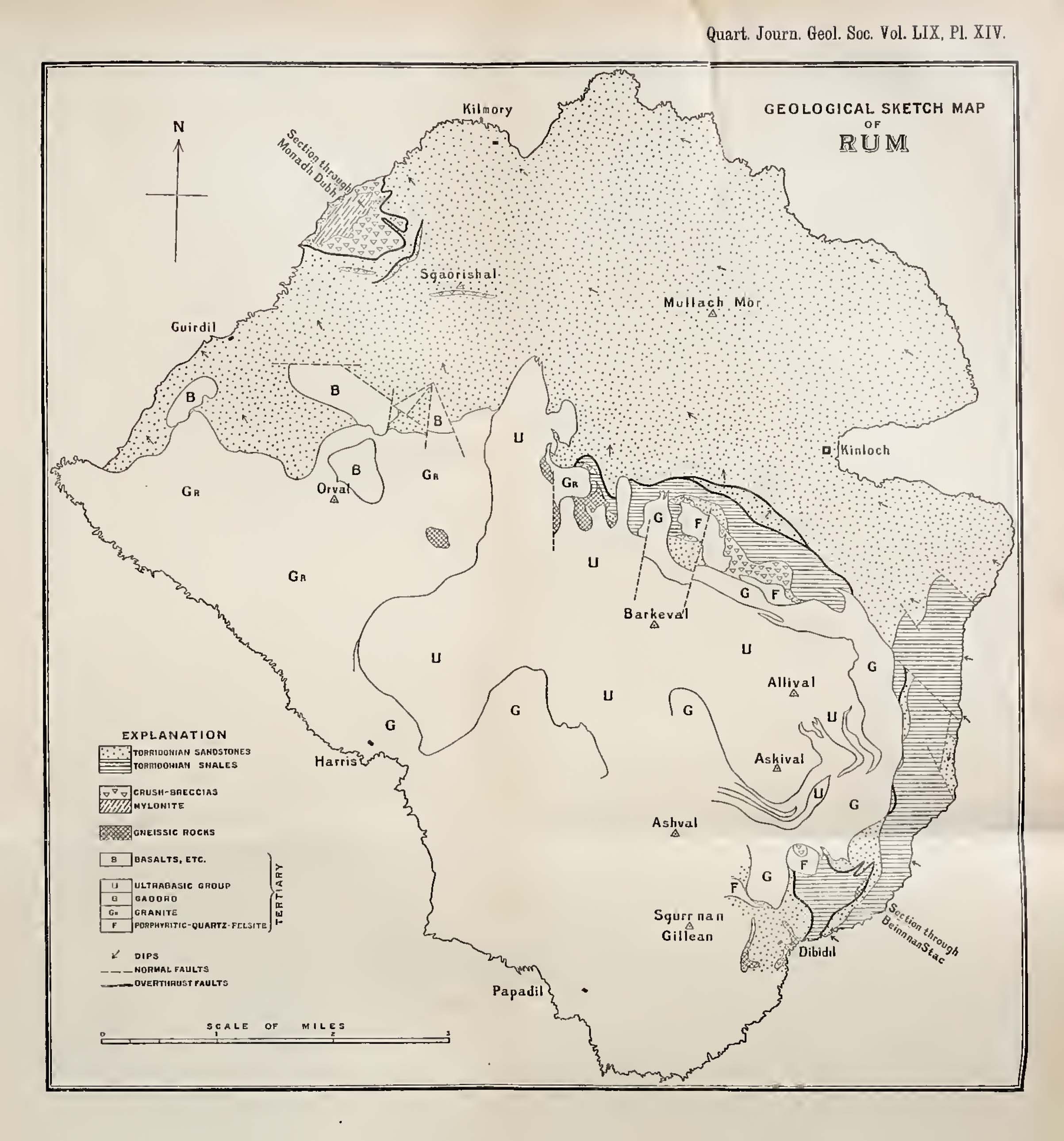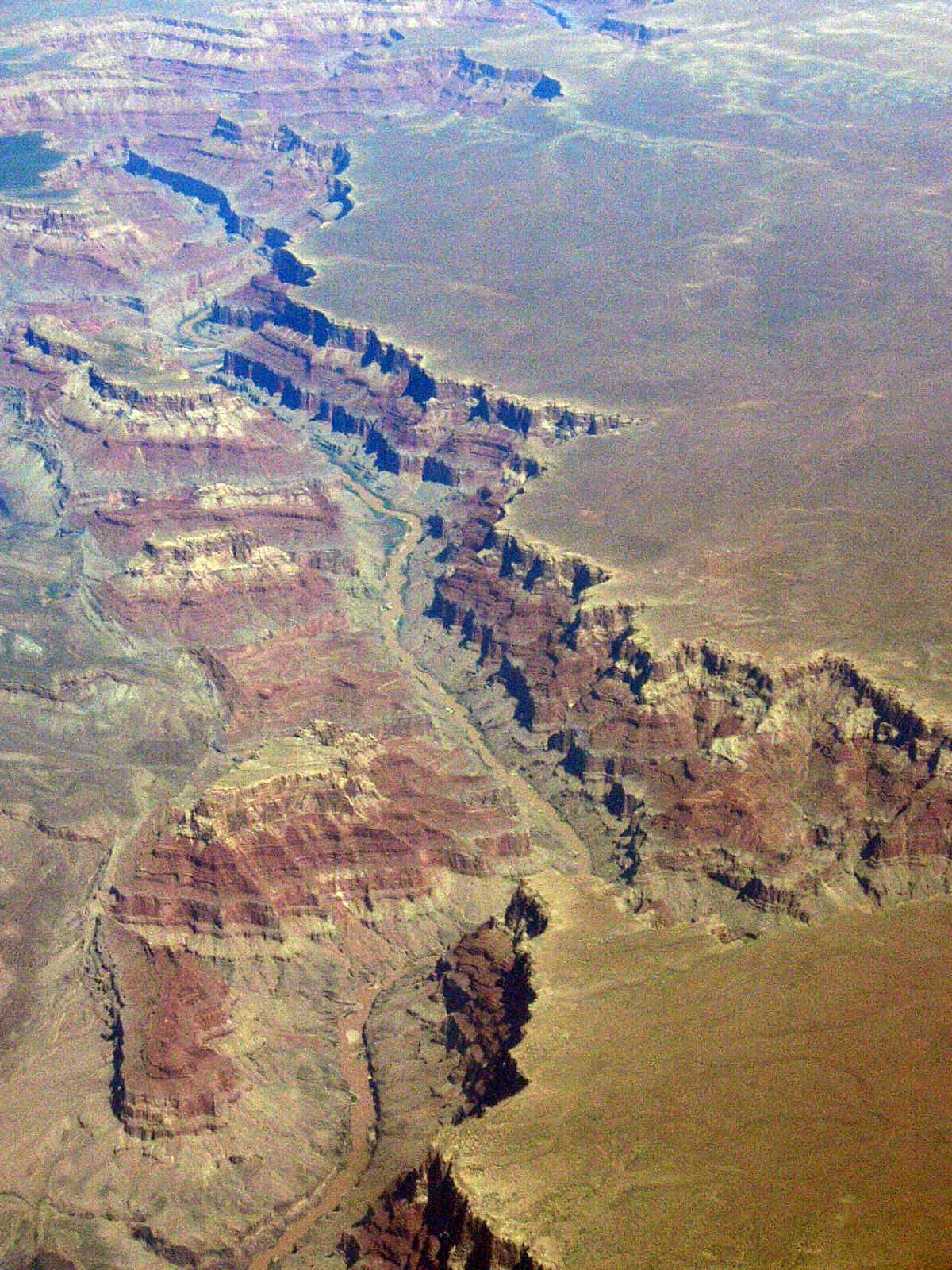|
Alfred Harker
Alfred Harker Fellow of the Royal Society, FRS (19 February 1859 – 28 July 1939) was an English geologist who specialised in petrology and interpretive petrography. He was lecturer in petrology at the University of Cambridge for many years, and carried out field mapping for the Geological Survey of Scotland and geological studies of western Scotland and the Isle of Skye. He and other British geologists pioneered the use of thin sections and the petrographic microscope in interpretive petrology. Education and career Harker's father was the Yorkshire corn merchant Portas Hewart Harker, his mother Ellen Mary Harker. He attended Hull College, Hull and East Riding College, and the private Clewer House School (Windsor, Berkshire, Windsor) before enrolling as an undergraduate at St John's College, Cambridge, St. John's College (Cambridge) from where he graduated with an Master's degree, M.A. on 18 January 1882. Whilst at Cambridge he was an early member of the Sedgwick Club. In 1884 ... [...More Info...] [...Related Items...] OR: [Wikipedia] [Google] [Baidu] |
Fellow Of The Royal Society
Fellowship of the Royal Society (FRS, ForMemRS and HonFRS) is an award granted by the Fellows of the Royal Society of London to individuals who have made a "substantial contribution to the improvement of natural science, natural knowledge, including mathematics, engineering science, and medical science". Overview Fellowship of the Society, the oldest known scientific academy in continuous existence, is a significant honour. It has been awarded to :Fellows of the Royal Society, around 8,000 fellows, including eminent scientists Isaac Newton (1672), Benjamin Franklin (1756), Charles Babbage (1816), Michael Faraday (1824), Charles Darwin (1839), Ernest Rutherford (1903), Srinivasa Ramanujan (1918), Jagadish Chandra Bose (1920), Albert Einstein (1921), Paul Dirac (1930), Subrahmanyan Chandrasekhar (1944), Prasanta Chandra Mahalanobis (1945), Dorothy Hodgkin (1947), Alan Turing (1951), Lise Meitner (1955), Satyendra Nath Bose (1958), and Francis Crick (1959). More recently, fellow ... [...More Info...] [...Related Items...] OR: [Wikipedia] [Google] [Baidu] |
Master's Degree
A master's degree (from Latin ) is a postgraduate academic degree awarded by universities or colleges upon completion of a course of study demonstrating mastery or a high-order overview of a specific field of study or area of professional practice. A master's degree normally requires previous study at the bachelor's degree, bachelor's level, either as a separate degree or as part of an integrated course. Within the area studied, master's graduates are expected to possess advanced knowledge of a specialized body of theoretical and applied topics; high order skills in analysis [...More Info...] [...Related Items...] OR: [Wikipedia] [Google] [Baidu] |
Lake District
The Lake District, also known as ''the Lakes'' or ''Lakeland'', is a mountainous region and National parks of the United Kingdom, national park in Cumbria, North West England. It is famous for its landscape, including its lakes, coast, and mountains, and for its literary associations with Beatrix Potter, John Ruskin, and the Lake Poets. The Lakeland fells, or mountains, include England's List of P600 mountains in the British Isles, highest: Scafell Pike (), Helvellyn () and Skiddaw (). The region also contains sixteen major lakes. They include Windermere, which with a length of and an area of is the longest and largest lake in England, and Wast Water, which at is the deepest lake in England. The Lake District National Park was established in 1951, and covers an area of , the bulk of the region. It was designated a UNESCO World Heritage Site in 2017. National Park The Lake District National Park includes all of the central Lake District, though the town of Kendal, some c ... [...More Info...] [...Related Items...] OR: [Wikipedia] [Google] [Baidu] |
John Edward Marr
John Edward Marr FGS FRS (14 June 1857 – 1 October 1933) was a British geologist. After studying at Lancaster Royal Grammar School, he matriculated to St John's College, Cambridge, graduating with First Class Honours in 1878. Following undergraduate work in the Lake District, he travelled to Bohemia to investigate the fossil collection of Joachim Barrande, where his work won him the Sedgwick Prize in 1882. In 1886, Marr became lecturer at the University of Cambridge Department of Geology, a position he held for 32 years until he succeeded Thomas McKenny Hughes as Woodwardian Professor of Geology in 1917. Early life and education Marr was born in Poulton-le-Sands on 14 June 1857 to John Marr, a retired silk merchant, and his wife Mary Simpson. After the family stayed in Caernarfon in 1863, Marr became interested in geology, having discovered a fossil which was named after him. From 1867 to 1875 he studied at the Lancaster Royal Grammar School, where he met R. H. Tiddeman, ... [...More Info...] [...Related Items...] OR: [Wikipedia] [Google] [Baidu] |
Scottish Mountaineering Club
Established in 1889, the Scottish Mountaineering Club is a club for climbing and mountaineering in Scotland. History The Scottish Mountaineering Club (SMC) was formed in Glasgow, Scotland, in March 1889, as one of Scotland's first mountaineering clubs. The club was initially proposed by William W. Naismith, William Wilson Naismith, a Scottish accountant and mountaineer, who published a letter in the ''The Herald (Glasgow), Glasgow Herald'' in January 1889 that suggested establishing a Scottish version of the Alpine Club. According to club records, the object of the SMC was: The purpose of the SMC was to document the exploration of the Scottish Highlands and its local flora and fauna. Soon after its inception, the SMC began publishing the ''Scottish Mountaineering Club Journal'' in 1890. The Journal provided their members and other alpine groups with lists of accommodations, guidebooks and maps of climbing areas. In 1945, the SMC joined the British Mountaineer Council, a coalitio ... [...More Info...] [...Related Items...] OR: [Wikipedia] [Google] [Baidu] |
Archibald Geikie
Sir Archibald Geikie (28 December 1835 – November 1924) was a Scottish geologist and writer. Early life Geikie was born in Edinburgh in 1835, the eldest son of Isabella Thom and her husband James Stuart Geikie, a musician and music critic. The elder brother of James Geikie, he was educated at Edinburgh High School and University of Edinburgh. Career In 1855 Geikie was appointed an assistant with the British Geological Survey. Among his early publications for a popular audience was ''The Story of a Boulder; or, Gleanings from the Note-Book of a Geologist'' (1858). His ability at once attracted the notice of his chief, Sir Roderick Murchison, with whom he formed a lifelong friendship, and whose biographer he subsequently became. Geikie completed some early geological mapping with Murchison on complicated regions of schists in the Scottish Highlands; and they jointly published a new geological map of Scotland in 1862. Geikie completed a larger map in 1892. In 1863 he publi ... [...More Info...] [...Related Items...] OR: [Wikipedia] [Google] [Baidu] |
Harker Geological Map Isle Of Rum 1903
Harker may refer to: People *Harker (surname) Municipalities * Harker, Cumbria, north of Carlisle, England * Harker, Florida, census-designated place located in Collier County, Florida *Harkers Island, North Carolina, census-designated place in Carteret County, North Carolina * Harker Heights, Texas, city in Bell County, Texas Buildings * Fort Harker (Alabama), military fortification built during the American Civil War *Fort Harker (Kansas), military installation of the US Army from 1866 to 1872 *The Harker School, private educational institution in San Jose, California, USA Geographical features Watercourses * Harker Creek (other), the names of several creeks in the USA * Harker's Run (Ohio), stream located in Preble County, Ohio, USA * Harker Run (West Virginia), stream located in Wetzel County, West Virginia, USA Lakes *Harker Lake, shallow glacial lake in Kidder County, North Dakota, USA *Upper Harker Lake, shallow glacial lake located in Kidder County, North Dakota, ... [...More Info...] [...Related Items...] OR: [Wikipedia] [Google] [Baidu] |
Reader (academic Rank)
The title of reader in the United Kingdom and some universities in the Commonwealth of Nations, for example India, Australia and New Zealand, denotes an appointment for a senior academic with a distinguished international reputation in research or scholarship. In the traditional hierarchy of British and other Commonwealth universities, reader (and principal lecturer in the new universities) are academic ranks above senior lecturer and below Chaired Professor, recognising a distinguished record of original research. Reader is a professor without a chair, similar to the distinction between professor and chaired professor in Hong Kong and between ''professor extraordinarius and'' ''professor ordinarius'' at some European universities. Readership is one/two rank(s) more prestigious than senior/permanent Lecturership, which translate to Associate/Assistant Professorship. Readers in the UK would correspond to the start of full professors in China and the United States.Graham WebbMak ... [...More Info...] [...Related Items...] OR: [Wikipedia] [Google] [Baidu] |
Newnham College
Newnham College is a women's constituent college of the University of Cambridge. The college was founded in 1871 by a group organising Lectures for Ladies, members of which included philosopher Henry Sidgwick and suffragist campaigner Millicent Garrett Fawcett. It was the second women's college to be founded at Cambridge, following Girton College. The College celebrated its 150th anniversary throughout 2021 and 2022. History The history of Newnham begins with the formation of the Association for Promoting the Higher Education of Women in Cambridge in 1869. The progress of women at Cambridge University owes much to the pioneering work undertaken by the philosopher Henry Sidgwick, fellow of Trinity. Lectures for Ladies had been started in Cambridge in 1869,Stefan Collini, "Sidgwick, Henry (1838–1900)", ''Oxford Dictionary of National Biography'', Oxford University Press, 2004; online edn, May 2007Retrieved 4 January 2017/ref> and such was the demand from those who could not tra ... [...More Info...] [...Related Items...] OR: [Wikipedia] [Google] [Baidu] |
Mentor
Mentorship is the patronage, influence, guidance, or direction given by a mentor. A mentor is someone who teaches or gives help and advice to a less experienced and often younger person. In an organizational setting, a mentor influences the personal and professional growth of a mentee. Most traditional mentorships involve having senior employees mentor more junior employees, but mentors do not necessarily have to be more senior than the people they mentor. What matters is that mentors have experience that others can learn from. According to the Business Dictionary, a mentor is a senior or more experienced person who is assigned to function as an advisor, counsellor, or guide to a junior or trainee. The mentor is responsible for offering help and feedback to the person under their supervision. A mentor's role, according to this definition, is to use their experience to help a junior employee by supporting them in their work and career, providing comments on their work, and, most cr ... [...More Info...] [...Related Items...] OR: [Wikipedia] [Google] [Baidu] |


